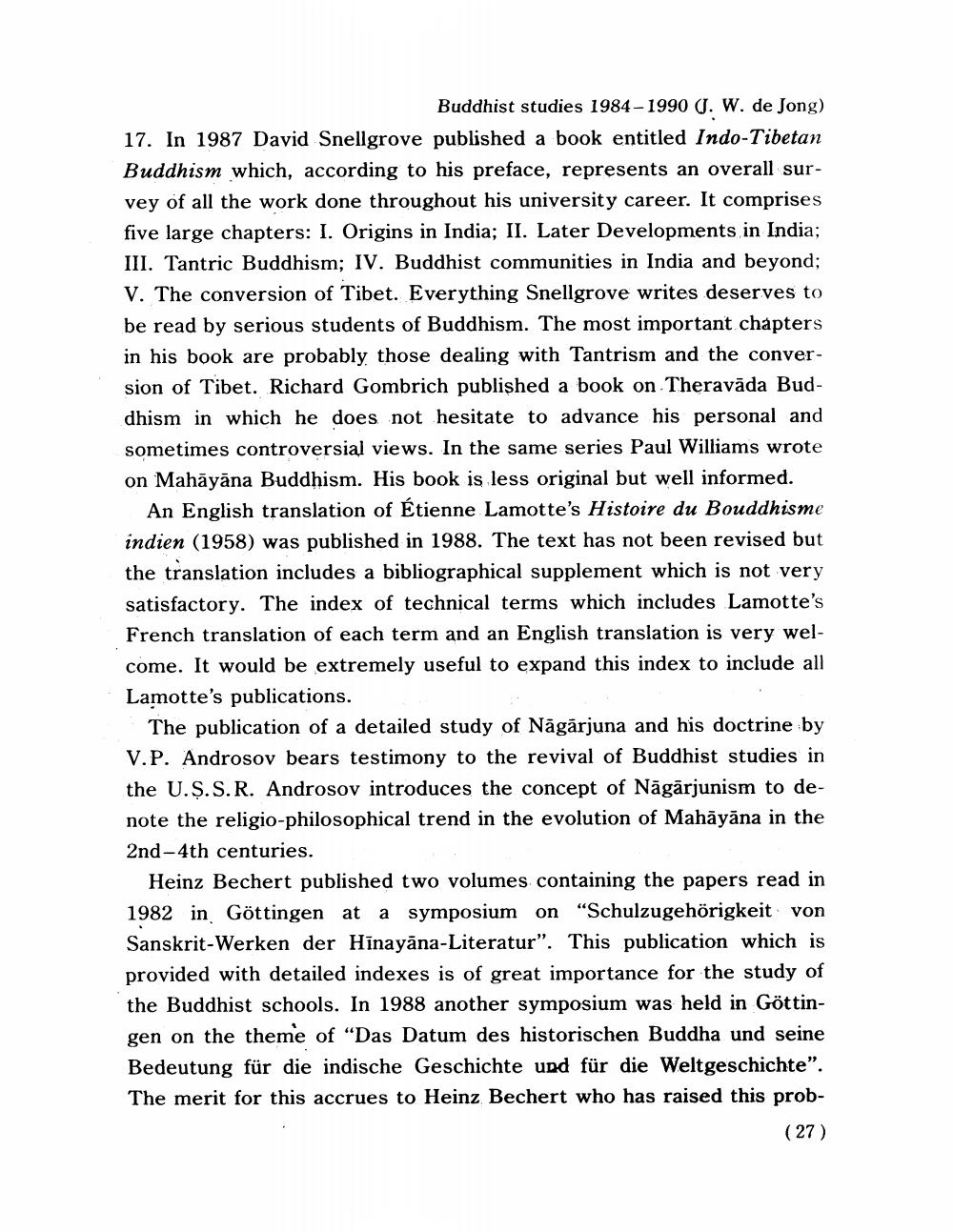________________
Buddhist studies 1984-1990 (J. W. de Jong) 17. In 1987 David Snellgrove published a book entitled Indo-Tibetan Buddhism which, according to his preface, represents an overall survey of all the work done throughout his university career. It comprises five large chapters: I. Origins in India; II. Later Developments in India; III. Tantric Buddhism; IV. Buddhist communities in India and beyond; V. The conversion of Tibet. Everything Snellgrove writes deserves to be read by serious students of Buddhism. The most important chapters in his book are probably those dealing with Tantrism and the conversion of Tibet. Richard Gombrich published a book on Theravāda Buddhism in which he does not hesitate to advance his personal and sometimes controversial views. In the same series Paul Williams wrote on Mahāyāna Buddhism. His book is less original but well informed.
An English translation of Étienne Lamotte's Histoire du Bouddhisme indien (1958) was published in 1988. The text has not been revised but the translation includes a bibliographical supplement which is not very satisfactory. The index of technical terms which includes Lamotte's French translation of each term and an English translation is very welcome. It would be extremely useful to expand this index to include all Lamotte's publications.
The publication of a detailed study of Nagarjuna and his doctrine by V.P. Androsov bears testimony to the revival of Buddhist studies in the U.S.S.R. Androsov introduces the concept of Nāgārjunism to denote the religio-philosophical trend in the evolution of Mahāyāna in the 2nd -4th centuries.
Heinz Bechert published two volumes containing the papers read in 1982 in Göttingen at a symposium on "Schulzugehörigkeit von Sanskrit Werken der Hinayāna-Literatur”. This publication which is provided with detailed indexes is of great importance for the study of the Buddhist schools. In 1988 another symposium was held in Göttingen on the theme of "Das Datum des historischen Buddha und seine Bedeutung für die indische Geschichte und für die Weltgeschichte". The merit for this accrues to Heinz Bechert who has raised this prob
(27)




